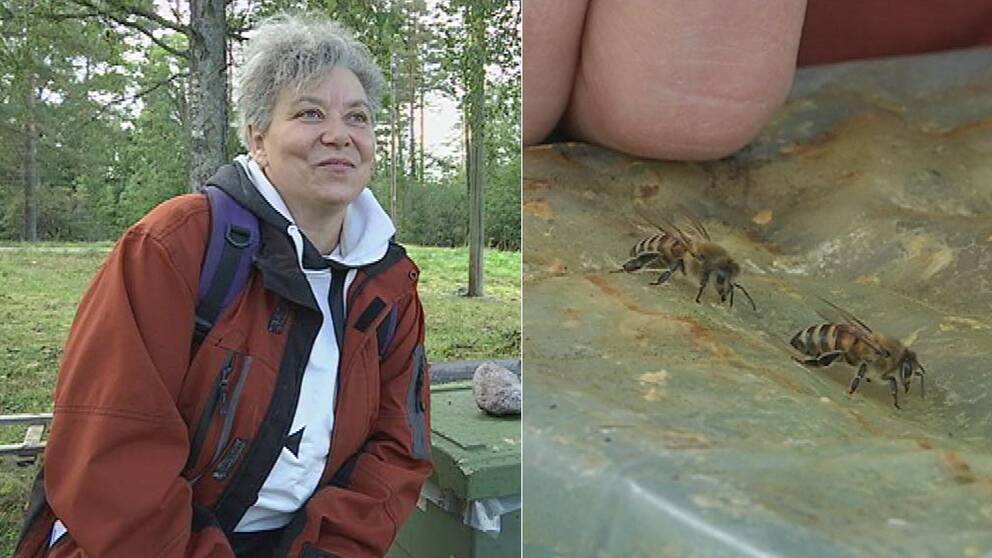Over the weekend, hundreds of growers and interested parties gather at the annual conference this time at Selma Spa in Sunne. The organizer states that it is fully cracked and more are expected to queue at the door.
International lecturers participate and everything from the quality of the honey to the threats of varroa mites will be harvested until Sunday. But what is at the top of the agenda is the threat from Eastern so-called black honey.
"It has created real financial problems, especially in Eastern Europe," says organizer Thomas Dahl, board member of Beekeeping Companies.
Shortcut through UkrainePreviously, the companies behind Chinese black honey have targeted the US, but after import stops there they have turned their eyes to Europe.
- After all, a back door was created via Ukraine and there you saw your chance, says Thomas Dahl.
The criticism against black honey is that it is handled incorrectly and industrially. These are counterfeits using "rice syrup" which is mixed with pollen additives and flavored to resemble honey. Precisely handling the product is the biggest difference from Swedish honey. This affects the growers and, by extension, the pollinators and biodiversity.
IMPORT RESTRICTIONSIn the industry, the problems with black honey have become a snack ice cream. From several quarters now there are demands for import restrictions and Etienne Bruneau will report on what happens at the highest political level of COPA and Apimonida this weekend.
- Unless the situation improves, European beekeepers will not be able to continue. This threatens the existence of more than ten million beehives in Europe, Etienne said in an interview earlier this week, at the same time he pointed out what this could mean for biodiversity.
How are we affected in Sweden by this?
- We are affected indirectly. More than 40 percent of the honey sold is produced here, but the rest is imported. We have pretty good control over imports, but every year black honey comes in, says Thomas Dahl.
Check markingBlack honey itself is not an illegal product, however, it is common that labeling rules are not followed. There are other products on the market that claim to be something that really is not, says Dahl, mentioning a butter made from rapeseed oil and additives. The fact that black honey has become a big industry is clearly evident in the figures, he says.
- In the last ten years, honey production in China has increased by 50 percent, but the number of communities is the same. The same is true in Vietnam and Thailand.
How should you as a consumer avoid black honey?
- Read on the can! There are labels for Swedish honey, from the EU and outside the EU. Then there is a mark for mixed origin that can be made anywhere, concludes Thomas Dahl.
The browser is not supported
SVT does not support playback in your browser. We therefore recommend that you switch to another browser.
Learn more about browser support
Javascript is turned off
Javascript must be turned on to play video
Learn more about browser support

